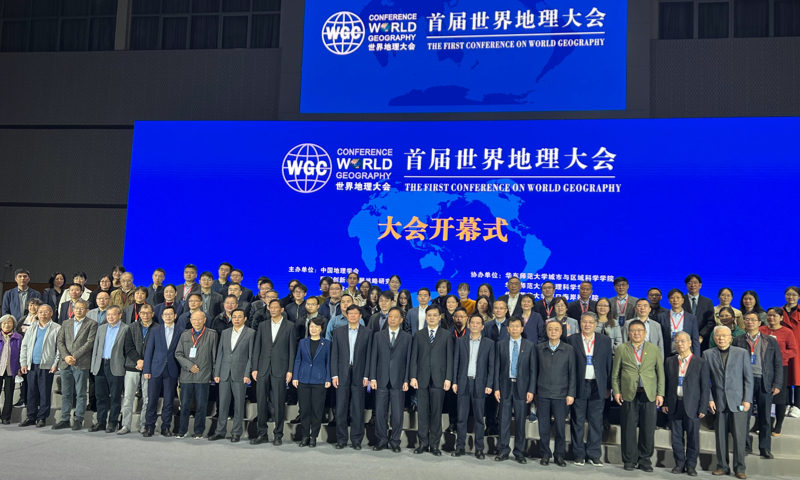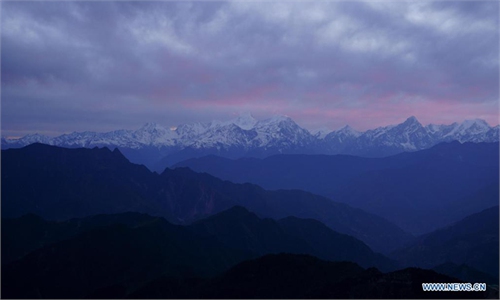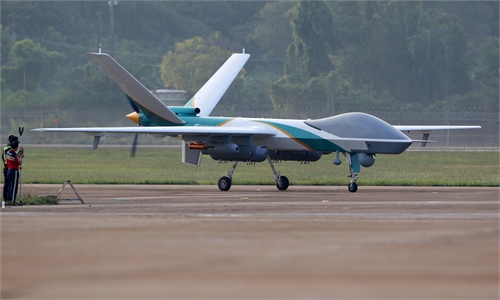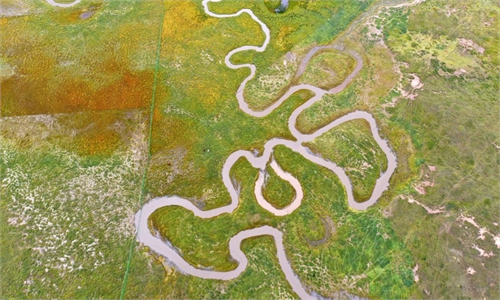Expert proposes integrated development around Himalayas to tackle regional risks at 1st Conference on World Geography

The First Conference on World Geography, with the theme of “Geography and Our Common Future,” is held on November 26, 2022, in Shanghai. Photo: Du Qiongfang/GT
A Chinese expert proposed a new solution of integrated development via strengthening border trade exchanges and cross-border coordination in the region of the Himalayas to tackle the multi-dimensional geopolitical security risks and further promote building a regional community of shared future, at a key conference in Shanghai.
The proposal was made at the First Conference on World Geography, with the theme of "Geography and Our Common Future," which was held during the weekend in Shanghai.
Although fraught with geopolitical risks, the Himalayas region has a long history of interpersonal exchanges involving religion, ethnic groups and military.
Chen Fahu, academician from the Chinese Academy of Sciences and president of the Geographical Society of China, proposed at the conference to promote integrated development around the Himalayas by strengthening border trade exchanges and cross-border coordination.
In his keynote lecture entitled "Geo-security Issues Around the Himalayas," Chen linked the significance of the Qinghai-Xizang (Tibet) Plateau where the Himalayas is situated with national security.
According to Chen, the Qinghai-Xizang (Tibet) Plateau plays an important role in safeguarding China's national security, a reserve base of strategic resources, a barrier for water safety and ecological security, as well as an important cultural area for China.
To cope with multi-dimensional risks in the region, Chen proposed the construction of integrated infrastructure zones at cross-border areas, which may include setting up free trade zones, industrial zones and international tourism zones.
Chen's team also proposed expanding border trade exchanges at an appropriate time to facilitate the movement of border residents and to boost border trade.
The team suggested strengthening cross-border economic cooperation by making use of the vital role played by border villages.
Since the 20th century, geography has been a key to geopolitics and international cooperation when viewed as a basic subject in studying man's relationship to land.
The First Conference on World Geography was jointly held by the Geographical Society of China, China Institute for Innovation & Development Strategy, East China Normal University (ECNU) and University of the Chinese Academy of Sciences.
Experts from China and abroad delivered over 500 keynote lectures and reports on a variety of topics ranging from geography and low-carbon energy security to research innovative tools and methodologies for the advancement of world geography during the two-day conference, which is being held both online and on-site.
"Geography is an interdisciplinary subject between the natural sciences and the humanities," Du Debin, professor of human geography and dean of the School of Urban and Regional Science at the ECNU, told the Global Times at the sidelines of the conference on Saturday.
"When we talk about the construction of a community with a shared future for mankind, we have to understand the distribution of local natural geographic resources and the local humanities, and the social and economic conditions, since humans are not only about population, but also about the spatial distribution of activities, and the relationship between all human activities and the natural environment," Du said.



